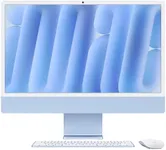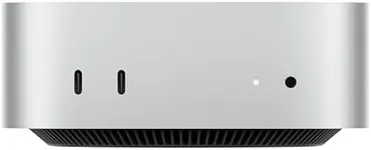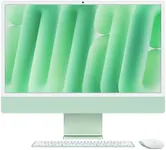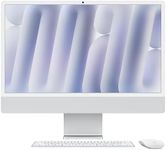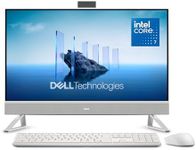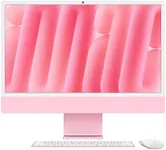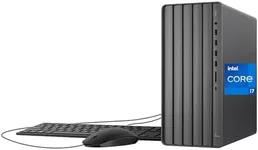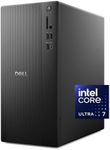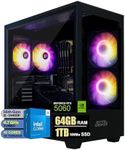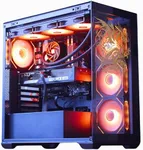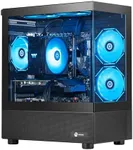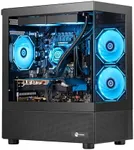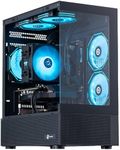Buying Guide for the Best Desktop Computers
Choosing the right desktop computer can seem overwhelming with so many options available. The most important thing is to focus on how you plan to use your computer. Are you looking for a machine for basic tasks like web browsing and email, or do you need something powerful for creative work or gaming? By understanding your needs, you can narrow down the specifications that matter most and avoid paying for features you won’t use. Take your time to learn about the main specs, as these are what determine how the computer will perform for you now and in the future.Processor (CPU)The processor, or CPU, is the brain of the computer and directly affects how fast your computer runs programs and multitasks. A faster or more advanced CPU generally means snappier performance, especially when running demanding applications or having many programs open at once. Basic users who do light tasks can look for entry-level processors, which will suffice for email, web browsing, and word processing. Intermediate users who do some photo editing, light gaming, or run several apps at once should consider mid-range CPUs. Power users or those who handle video editing, advanced gaming, or 3D modeling should focus on high-end CPUs for smooth performance.
Memory (RAM)RAM, or system memory, helps your computer manage more tasks at once and keep things running smoothly when you have lots of applications or browser tabs open. If you use your computer for very basic activities, a lower amount of RAM will work just fine. For typical day-to-day multitasking, a moderate amount is recommended, while heavy users who run specialized software or like to keep many programs open will need more RAM to avoid slowdowns. Consider your multitasking habits and the software you use to guide how much RAM you need.
Storage (HDD/SSD)Storage is where all your files, programs, and the operating system are kept. Hard Disk Drives (HDDs) offer lots of space for less money, while Solid State Drives (SSDs) are much faster, leading to faster boot times and get things done more quickly. There are also computers that use both, giving a balance between speed and capacity. If you mainly store documents and photos with light use, a smaller SSD may be enough. For users who have large libraries of photos, videos, or games, or need a very responsive system, look for a bigger SSD or a combination of SSD and HDD, depending on what feels more practical.
Graphics (GPU)The graphics card, or GPU, handles visual processing and is a key part of gaming, video editing, and anything that displays complex images. Integrated graphics are built into the CPU and are fine for browsing and basic office work with some streaming. Discrete or dedicated GPUs are separate units suited for more demanding visuals, like modern games, 3D design, or professional creative applications. If you just watch videos or do non-visual work, you don’t need a powerful GPU. For creative work or gaming, make sure to pick a system with a dedicated and stronger GPU.
Form FactorThe form factor refers to the size and shape of the computer. There are large towers, compact desktops, and tiny mini-PCs. Towers offer room for upgrades and better cooling and are good if you need power or plan to upgrade later. Compact desktops are great if you have limited space but still want decent performance. Mini-PCs save the most space but may offer limited upgradability and lower performance. Your workspace size and need for future upgrades can help steer you to the best form factor for your setup.
Connectivity and PortsConnectivity includes USB ports, HDMI, audio jacks, and network connections. More ports make it easier to plug in all your devices (monitors, keyboards, printers, etc.). Think about what you’ll need to connect: multiple monitors, lots of USB devices, or other peripherals? Make sure the desktop has enough of the right ports to meet your needs. Also, consider if you need built-in Wi-Fi, Bluetooth, or a memory card reader, depending on your preferred accessories and setup.
UpgradeabilityUpgradeability is about how easily you can add or swap out parts like RAM, storage, or graphics cards in the future. Some desktops are easy to open and upgrade, while others might be limited or sealed, making future upgrades tricky or impossible. If you want a computer that will keep up with changing needs or technology, choose a model designed for easy access and upgrades. If you’re not planning on making changes, this is less crucial, but for longevity, upgradeability can be a big advantage.
